
@gbvy[WΙίι@Back to Top Page
 |
Welcome Students & Collaboration |
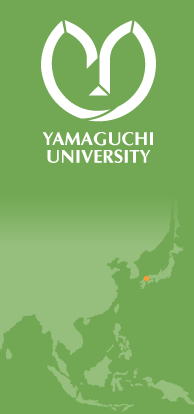 |
pμΖ Prof Hiroya Kadokawa XΦΤ@753-8515 RϋsgcPUVV|P@ Rϋεw@€―bγw dq[: hiroya Abg}[N yamaguchi-u.ac.jp CONTACT DETAILS Address Faculty of Veterinary Medicine, Yamaguchi University, Yoshida 1677-1, Yamaguchi, 753-8515, JAPAN Please feel free to inquire using my e-mail address hiroya "at mark" yamaguchi-u.ac.jp |
 |
| QUALIFICATION BSc (Agric) Hokkaidio University, PhD (Veterinary Science) The University of Tokyo |
| LANGUAGES Japanese (mother-tongue), English (fluent) |
|
You can learn and enjoy the Powerpoint files in English. (1) Please use "Internet Explorer" as WEB-browser, and do not use other browser (e.g. Firefox) to access the following page, and allow "pop-up" to use ACTIVE-X when Internet Explorer alerts. (3) Please "Click" left button of
mouse to forward. |
| Our university, Yamaguchi University |
| Ones of our scientific results in endocrinology, neuroendocrinology, and nutrition in reproduction of high-producing dairy cows |
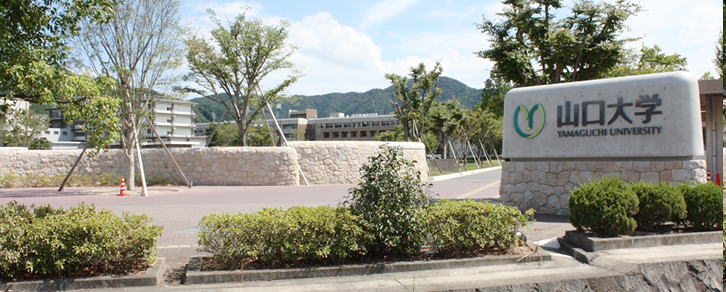 |
 |
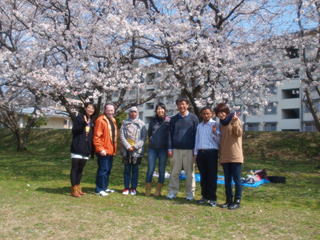 |
 |
BIOGRAPHYI was born in eastern Japan and grew up in what is the rice-belt there. I graduated in Animal Science at the one of most important University for dairy cows, "Hokkaido University", located in northern Japan. After graduation, Ministry of Agriculture, Forestry and Fisheries (MAFF) of Japan selected me by various difficult tests of very keen competition, then, I begun to work at topnotch national institutes of MAFF in Japan as Animal Scientist of tenure appointment. I did not enter any graduate school, firstly because it is quite difficult to become scientist of tenure appointment in Japan, and secondly because it is not necessary to enter any graduate school in order to obtain PhD if Japanese scientist publish several excellent papers. I have studied for more than 30 years in the field of reproduction and management in dairy and beef cows, especially to avoid troubles in postpratum period, as well as endocrinology and neuroendocrinology. I published many papers published in several international journals. In 2000, Australian Academy of Science awarded me a Fellowship, and I worked in both Commonwealth Scientific and Industrial Research Organization (CSIRO) and University of Western Australia (UWA) for the influences of nutritional signals (e.g. leptin) and environmental factors on the reproductive system, with an emphasis on the brain mechanisms involved, in sheep as ruminant model. In 2003, Tokyo University awarded me PhD in Veterinary Science. In 2005, with helps of several excellent scientists in New Zealand, Australia, and Japan, I held first joint symposium between Australian Society of Reproductive Biology (SRB) and Japanese Society of Reproduction and Development (SRD) for purpose on hClean, Green, and Ethical@Animal Repoduction. In 2005, Organization for Economic Co-operation and Development (OECD) awarded me a Fellowship, and I studied in an international collaboration program to promote sustainable animal production in Western Australia. I studied GnRH variants and "male effect" as socio-sexual signal to induce ovulation in ewes, and we developed artificial, but clean and green methods to manage reproduction in small ruminants. In July 2006, I was appointed as an associate professor in Veterinary Science of Yamaguchi University. Since 2006, I have worked in the field of animal reproduction and health management. I have supervised more than 10 PhD students and more than 20 undergraduate students. Some students are awarded in Society because of excellent studies. In 2009, I invited Australian scientist to our laboratory to develop methods of cryopreservation of semen for artificial insemination in Ostrich and Emu. As collaboration with Japan Industrial Counselors Association (JICA), I have taught for knowledge and technologies of animal production for Brazilian and Bolivian farmers. Also in 2010, I was invited by some Indonesian Universities to lecture both animal reproduction and health management for young Indonesian students and teachers. Furtheremore in 2011, I visited both University of Florida and Iowa State University in order to lecture high-quality beef production and Wagyu in Japan, and collected and discussed for informations of heat stress in domestic animals. Then, we have published several reviews of heat stress, including a review with coauthorship of Prof. Hansen in University of Florida. From 2015, I have begun another international collaboration with Prof. Graeme Martin of UWA to clarify mechanisms of the effect of a special Australian legume to increase twin lambing in sheep. We will adopt result of the project to Wagyu. Also we have begun collaboration with Prof. Borromeo in University of Milano in Italy to clarify role of new receptors in anterior pituitary. Now, we are studying "Reproductive Physiology & Management" to minimize risks of infertility in order to create better bond between human and domestic animals. |
 |
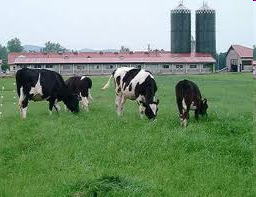 |
| KEY RESEARCH 1. Effects of environment stress and nutrition on animal reproductive functions. 2. Clarify mechanisms to induce infertility under advanced views of sciences. 3. Developing new tools to manage reproduction healthfully, based on molecular and cellular biological sciences. 4. Endocrinology and Neuroendocrinology for animal health and reproduction. |
| TEACHING Animal Reproductive physiology Veterinary health management Endocrinology and neuroendocrinology |
| RECENT PUBLISHED BOOK |
 |
A New Perspective on Management of Reproduction
in Domestic Ruminants: Utilizing their Parallel Processing Network Linking
Between Adipocytes and Hypothalamus. pp. 1-15. In New Research on Neurosecretory Systems (Eds: Elissa Romano and Sara De Luca) iA neurosecretory system consists of neurons that have the
specialized function to produce and secrete hormones, and that constitutes, in
whole or in part, an endocrine organ or system. This new book presents the
latest research in the field.j |
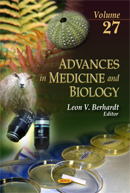 |
Environmental Stressors, Nutrition, and New Peptides Affecting Pituitary
Functions in Domestic Ruminants. pp. 195-209. In Advances in Medicine and Biology. Volume 27 (Eds: Leon V. Berhardt) Web page of publisher Abstract |
|
|